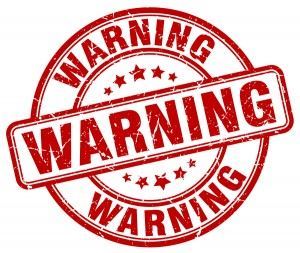Symptoms of Drug and Alcohol Addiction
Addiction isn’t an illness that manifests overnight. Over time, one’s brain becomes manipulated and hijacked to the point of being incapable of living without the substance. More often than not, individuals battling addiction recognize a problem is at hand, but because of the rewiring which has occurred in the brain, find themselves unable to stop. Or, they might still be at the point where they believe everything is under control when in reality the rest of their life is suffering.
The process of addiction
As an individual begins using an illicit substance like drugs or alcohol more and more, physical and mental changes begin happening. Initially, one might not even be conscious of a growing problem until it is too late. Others may have the self-awareness to recognize the signs of addiction and may begin taking steps to prevent the addiction from completely uprooting their lives.
Typically one moves from a stage of tolerance, where you must take a higher dose in order to get the same effect; to a stage of physical dependence, where certain physical symptoms will manifest if you don’t get the substance (like getting a headache when you don’t drink caffeine for a day); to addiction, where your life begins to circle around how and when you will obtain the next dose. Other signs will also begin to manifest as the addiction grows.
Symptoms of addiction
You might recognize these symptoms in a loved one, or you may begin to see them in yourself.
Physical
Physical symptoms can depend on the substance being used – whether it be alcohol or a various form of the drug — but some of the more common physical symptoms include:
- Slurred speech or, on the other hand, rapid or rambling speech
- Slowed breathing
- Restlessness
- Red eyes or dilated pupils
- Nausea or vomiting
- Changes in appearance, including weight loss
- Nasal congestion and damage to the mucous membrane of the nose
- Chest pain
- Changes in heart rate and blood pressure
- Drowsiness or insomnia
- Dizziness
- Experiencing withdrawal symptoms when you stop using
If you recognize more severe signs, including depressed or nonexistent breathing or seizures, get medical help immediately. It might be a sign of an overdose which can, if left untreated, become fatal.
Psychological
Illicit substances impact the mind and can cause one to feel off, disassociated and even irrational. Some of these signs may manifest outwardly, but many of them will be felt internally. Common psychological symptoms include:
- Problems concentrating or thinking
- Paranoia
- Hallucinations or delirium
- Depression
- Panic attacks
- Irritability or mood changes
- Violent or aggressive behavior
- Having intense urges for drugs or alcohol
- Engaging in risky, dangerous behavior like promiscuity, driving under the influence and stealing
- Over time, need more drugs or alcohol to get the same effect
Not everyone will experience all these symptoms, and may even experience different ones, but no matter what symptoms arise, it’s undeniable that drugs and alcohol seriously impact your mental health.
Social
When your mental health starts to suffer as a result of addiction, other areas of your life also begin to struggle, including daily responsibilities like work and school. Signs that addiction is affecting this aspect of your life include:
- Not meeting obligations and work responsibilities, or cutting back on social or recreational activities because of drug or alcohol use
- Spending money on drugs or alcohol to maintain a supply, even if you can’t afford it
- Focusing more and more time and energy on getting and using the drug
- Withdrawing from people and activities which you previously enjoyed
- Denying a problem, or assuring that the problem is under control
- Feeling that you have to use drugs or alcohol regularly — this can be daily or even several times a day
- Failing in your attempts to stop using drugs or alcohol
If you find that these symptoms begin manifesting, it might be time to consider addiction treatment.
What to do when you see the signs
The most important thing to remember is that addiction is a disease — therefore, it can be treated and recovered from. While healing from a lifestyle of addiction is challenging and lifelong, it is far from impossible.
So, when you recognize symptoms of addiction in your life and find yourself unable to change habits no matter how hard you’ve tried, do not give up hope. Take the steps necessary to begin changing your life, and take those steps one at a time. Find someone you trust who has your best interests at heart, and confide in them, asking them for help and support as you find and progress through treatment.
If you see the symptoms of drug or alcohol use in a loved one, work with them to appropriately come up with a plan. Don’t force them, but talk with them, learn their story and offer to walk with them if the change is something they desire.
Addiction treatment options
Addiction treatment facilities are available for those seeking freedom from addiction, including Freedom Detox. With personalized treatment programs and a plan for post-treatment support, you’ll not only experience detox in a certified and safe environment, you’ll be supported in the long term as you journey through recovery.
To get in contact with a counselor today, reach out to Freedom Detox by calling (704) 480-3367 or visit our website anytime.








